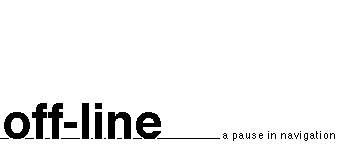 |
 |
September 1998 |
 |
 |
September 1998 |
| Giancarlo Livraghi gian@gandalf.it |
|
| |
|
| For twenty years we’ve been talking about the end of mass culture and
economy, the dawn of the Information Era, led by diversity and individuality. For four or
five years we’ve been saying that the expansion of the internet will finally make it
happen, that interactive communication will put an end to mass media and mass marketing,
that a world of sheep is turning into a multitude of individuals. But is it happening? In 1980 Jean-Jacques Servan-Schreiber, in his remarkable "Le Défi Mondial", wrote: In the post-industrial ere the perennial oppression of "finiteness" is broken. Within the reach of human beings is the infinite, the only resource: information, knowledge, intelligence. Twenty years later, with such a wide availability of electronic communication, we should be there... but are we? In the same year Alvin Toffler ("The Third Wave") explained that with new technologies "mass consumption" would disappear, consumers would turn into prosumers, taking an active part in the production (not only the distribution) of goods and services. Electronic technologies are now available on a scale that nobody predicted twenty tears ago. But is that forecast coming true on any large scale? In the boring karaoke of dominating media we can see no trace of individuality or diversity. Quite to the contrary, it’s becoming more and more repetitive and centralized, on a "global" scale. A few people in the key nodes of the information system can turn small gossip into a big event, or bury important news where it’s almost impossible to find it. The worldwide economy is dominated by mergers and acquisitions. As Gerry McGovern said in his brilliant article The Myth of the Individual the so-called dinosaurs are getting fatter and fatter as they gobble up more and more. Also in the net big companies and organizations are doing all they can to prevail. With a fair amount of success. Also in e-business there seem to be more big companies than small. A few are making some effort to provide personal service. Most are simply using the internet as "just another medium" for the same old "mass market" strategies, treating us as a bunch of sheep – with maybe a bit of not-so-accurate "segmentation" here and there. Where are the famous SMEs? There’s a lot of talk about "small and medium enterprises" but not much is happening – or, in any case, much less than could be happening. I don’t think anyone can predict the outcome. But it seems clear that there are two playing fields in the net (as in the market in general). One dominated by big companies (getting even bigger) and one that offers great opportunities for the small players – as John Naisbitt said in "Global Paradox". The problem is that very few companies can compete in the world of big concentrations. The relatively lightweight and somewhat clumsy dinosaurs in most countries have a slim chance of competing, or even surviving as independent entities, when they face the American (and a few other multinational) tyrannosaurs on their own ground. The other field, where the small can play, may be less visible in the lofty game rooms of high finance; but can bear rich rewards for good and patient gardeners. Small companies, that have been very successful worldwide for many years, can do even better by using the net. The problem is... how do we persuade the small entrepreneurs to use these new tools effectively? And the big companies to behave a bit less like hungry dinosaurs and treat us a bit less like sheep? This is, I think, the Défi Mondial – the Worldwide Challenge. |
|